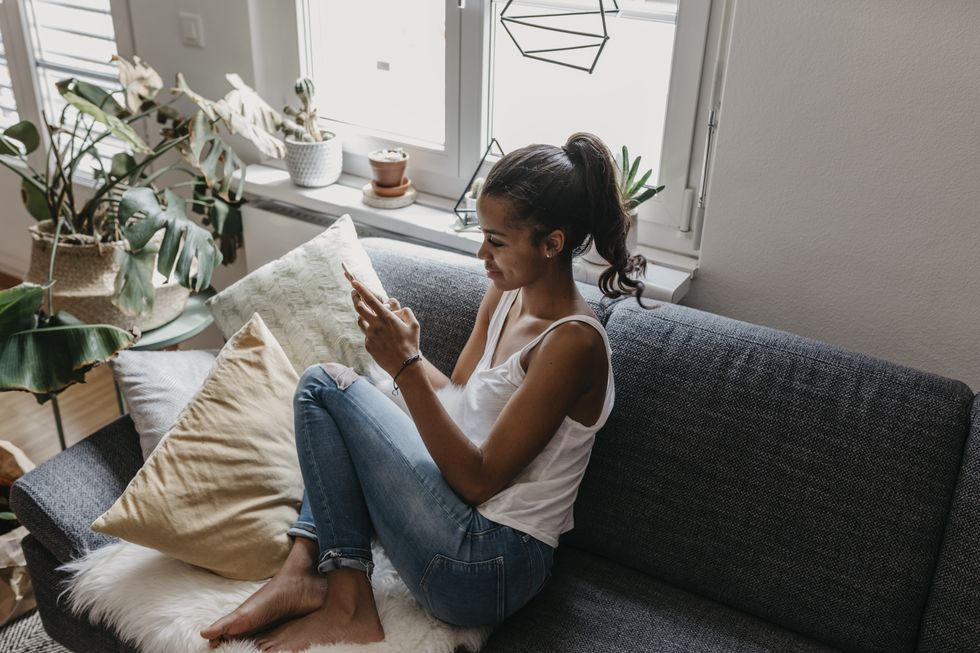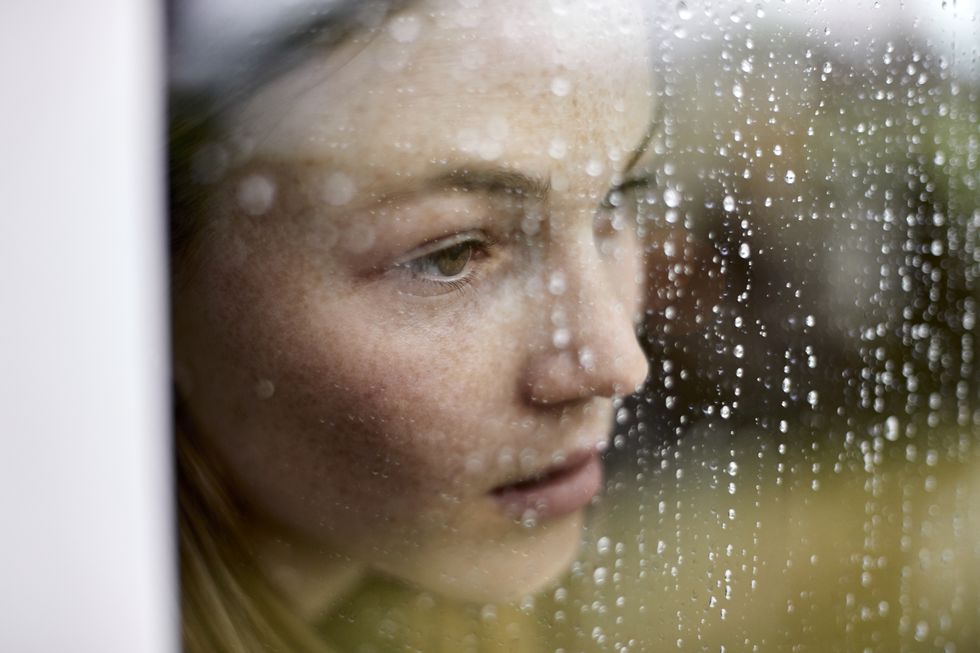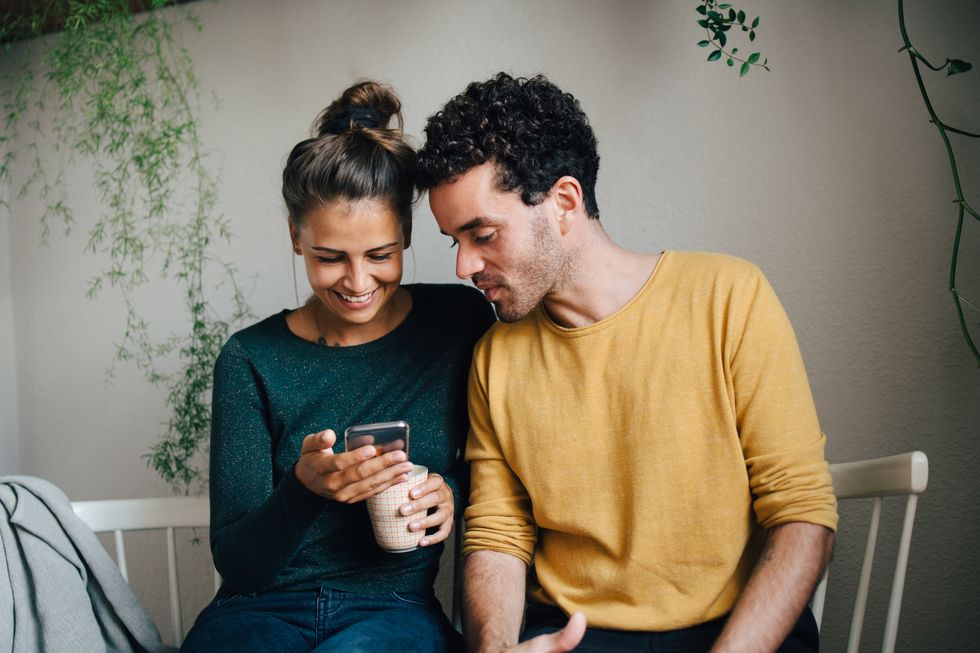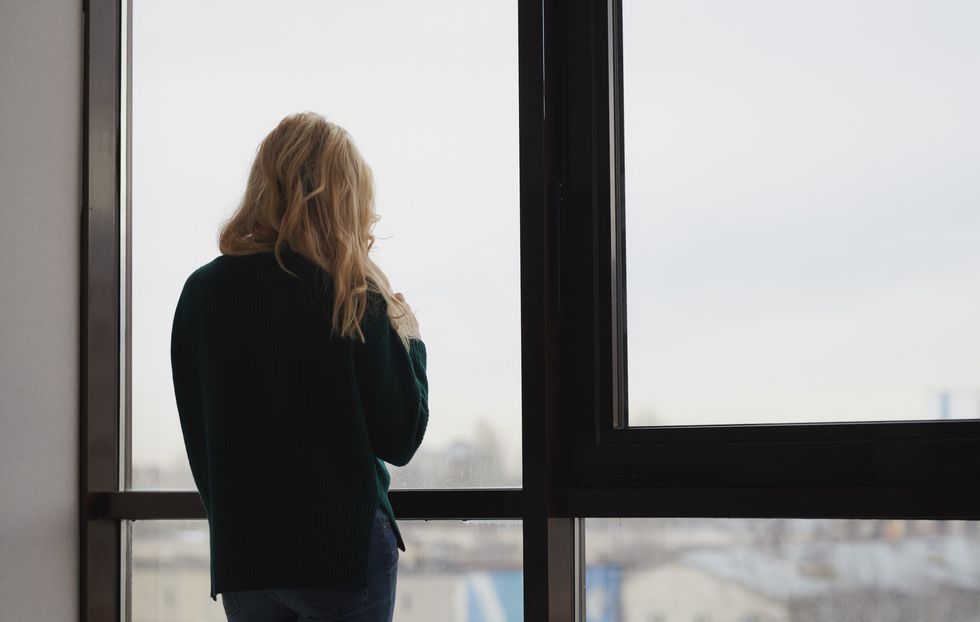Emotional turmoil is the preserve of the millennial generation, or so it seems sometimes.
Most of us are eyeball-deep in quarter life crises: sobbing into our cornflakes about our most recent drunk mishap, lack of pay rise, hopeless cooking skills and addiction to expensive avocados.
But these things are nothing, compared to the serious mental illnesses that many endure while also navigating the regular perils of being in your twenties or thirties. Depression and anxiety are horrible, sneaky pests that can hang around indefinitely, to dull senses, tug at happiness, keep purpose at arms length, prevent you from wanting to get up in the morning or from seeing the light at the end of the tunnel, and much worse.
A friend's depression diagnosis is difficult to handle, at the best of times.
How do you share the burden of something you haven't felt, or offer advice if it's something you don't fully understand?
Worse still, with the majority of individuals in the UK having stayed at home over the last year to tackle the spread of Coronavirus, it's been even harder to support friends living with mental health conditions when we haven't been able to see them face-to-face or offer them a hug or a helping hand.
According to the Mental Health Foundation, one in five women have common mental health problems – such as depression – and are almost twice as likely to be diagnosed with anxiety disorders than men.
Most of us are cautious about trying to help a friend in this sort of situation, for fear that we'll say the wrong thing or make it worse, or come off as unsympathetic.
But, as Dr Arthur Cassidy, one of the UK's top social media psychologist and broadcasters, explains: 'The most important thing that anyone can do as a friend – or even as a colleague – is to show human compassion, understanding and empathy.'
Sounds pretty obvious, but how do we put that into practice?
As Covid-19 continued to affect the world, we spoke to psychological experts to find their top tips for helping a friend with depression:
What are common feelings when you’re isolated and unable to interact with people?
Professor Neil Greenberg of the Royal College of Psychiatrists outlines that as many of us continue to work from home and practice social distancing away from friends and family, it is likely that people will still feel down, emotionally, at times over the months to come despite lockdown restrictions easing.
'People are likely to feel low in their spirits, to dwell on negative thoughts about themselves and the current situation and have negative views of the future,' he tells us.
'This may lead to low motivation to look after themselves and they may fall into unhealthy habits such as eating poorly, not taking any exercise, resorting to alcohol or cigarettes more and sleeping poorly.'
What are the psychological effects of self-isolating or practicing social distancing?
As the whole country has adapted and changed their daily routines, from commuting to work and enjoying a tea breaks with colleagues to implementing strict lunch breaks away from our desks at home and making time for indoor exercise, self-isolation at home will have had a noticeable effect on our psyches.
'Although many people initially find these requirements a challenge to cope with, we know that once we have got used to a situation we usually find we can cope better than we had thought,' Prof Greenberg outlines.
'A recently published rapid evidence review on the psychological impact of quarantine found that if it is organised well, it need not lead to longer term mental health problems.
'A good period of self-isolation means: having the right information and understanding why isolation is necessary, having basic food, health and sanitary supplies, staying in contact with our friends and family through remote means, and not spending too much time listening to the incessant media stories which can cause anxiety.'
What behaviours should we be aware of that might indicate someone is struggling with depression during Covid-19?
As friends, we're all up in each other's spaces, which puts us at great advantage to watch as moods fluctuate or as behaviour patterns change. And as we're privy to these changes, we're in a position to recognise early signs of mental health issues.
However, during the Covid-19 pandemic, it has been harder to notice changes in our friends when physical contact has been prohibited.
'We should look out for the normal signs that someone might have a mental health problem, although we will need to do it remotely or at a distance,' notes Prof Greenberg.
He suggests we keep an eye out for changes in someone’s usual character, 'them being more emotional, angry, withdrawn, or if they only talk about the negative things going on and cannot see any light at the end of the tunnel'.
Dr Cassidy also suggests keeping a note of how your friends appear to be feeling after you speak to them.
'It shouldn't be intensive monitoring. Just make a scale from 1 to 10 to determine how you think they are feeling, one being happy, 10 being abnormally reserved and unhappy.
'Keep notes and if you start to notice dramatic changes, it might be time to take action and talk to them about this,' he says.
If you've recognised a potential change in someone’s usual pattern of behaviours, thoughts or emotions, then Prof Greenberg advises friends and family to sensitively ask the individual how they are doing.
'Be prepared to listen - ideally non-judgmentally - to what they have to say,' he adds.
In addition, start to discuss ways to reframe the future in a more positive light. Perhaps organise a quiz night with a group of friends using the Houseparty app or a film night with Rave that allows you to watch programmes and films simultaneously together.
If you think endless hours scrolling on social media may be amplifying your friend's psychological issues, ask your friend if they'll join you in coming off Instagram or Facebook for a week.
With many social media users uploading images of their at-home workouts, freshly-baked sourdough breads and redecoration of their living rooms before 8am, it's no wonder a lot of us are struggling, emotionally and mentally, with self-isolation amid what often appears to be digital bragging.
'Many women find comparison with other lives to be depressing,' Cassidy notes.
What practical things can you do to support someone who suffers from depression during Covid-19?
While it's important to stay active, physically, over the next few weeks, as per the government's instruction, it's crucial that we equally prioritise our mental wellbeing.
'If you think that their mental health is really deteriorating you should persuade them to seek professional help, remotely, and not just try and tough it out,' says Prof Greenberg.
As for practical tips for helping a friend with depression, the experts advise the following:
1) Rely on practical information
While we shiver at using a phrase coined by President Donald Trump, experts suggest that people remain vigilant from reading into 'fake news' and only turn to reputable, fact-checked sources of information concerning Covid-19.
'Ensure that you rely on trusted authorities such as the NHS or Public Health England (PHE) for factual information about the pandemic and what to do,' says Prof Greenberg.
'While it is understandable that people will want to watch some media reporting of the crises, people who find their anxiety levels increase when they do so should limit their exposure to such information. In an uncertain time, try to stick to the known facts rather than focus on speculation and possibly unhelpful stories of dismay or sorrow.'
2) Check up on friends
Monitoring a friend's mental wellbeing may usually involve a cup of tea or jog around the park together but during the pandemic, we should proactively reach out to people to check on how they are doing using communication devices.
'Often as friends, we feel guilty we might do or say the wrong thing but there are skills of saying, "I'm with you even though I might not understand what you're going through, I'm not leaving you",' notes Dr Cassidy.
One of the most important things to do when your friend is knowingly suffering with depression is to engage with them.
'Be sure to reassure your friend that what they divulge to you is strictly confidential,' he adds.
Prof Greenberg suggests: 'Share your own concerns with them, as that may in turn help them to share their concerns with you. If you have to isolate yourself physically, there is a wide range of ways to keep in touch using phones, WhatsApp, Skype or similar. Physical isolation should not mean social isolation.
'Do not wait for other people to contact you; make a distinct effort to be more in touch than usual.'
3) Stay healthy
While it's understandable that many of us have reached for the chocolate, peanut butter out of the jar and oven-cooked pizzas so far during the pandemic for ease and comfort, we should be careful not to fall into prolonged bad eating habits.
'We know that a healthier body makes it more likely you will have a healthier mind,' says Prof Greenberg. 'So, this is the time to get more sleep, eat better food, drink less alcohol and smoke less, and to exercise more regularly.'
Read more about what you can do to stay fit at home here.
When it comes to helping friends stay active, mentally, Dr Cassidy says that the majority of depression in women is reactive depression – a depressed state in direct response to an external event. Sometimes, there is a perceptible event or circumstance that brings it about – such as a bereavement, a break-up or something else life-altering.
So in order to support a friend, it's a matter of looking for how you can help turn things around for them. Help them make arrangements such as organising a weekly food shop delivery, take a few things off their plate by suggesting a group FaceTime or set time to organise their daily schedule with them so they have structure.
Above all, this time should be about helping friends who are suffering from depression pave their way a little bit so that putting one foot in front of the other doesn't feel so monumental a challenge.
4) Reach out to others
Remember that during times of self-isolation, it's ok if you're mood isn't 100% cheery and positive at all times. After all, we're all human and it's expected for us all to experiences an ebbs and flow when it comes to our outlook on Covid-19 over the next few months.
'If you do get to the point of feeling unable to cope, reach out to someone for help,' says Prof Greenberg.
'Just because there will be many people who have physical health difficulties during the current crisis, it does not mean that those in a mental health crisis should not be cared for too.'
If you do find you're struggling, take a look at the NHS Every Mind Matters website which provides a range of information and tools that you might find useful. The Mental Health Foundation also has some information which is specific to the current outbreak.
5) Avoid trying to empathise
It's natural, when someone is being confessional, to try to soothe their discomfort with a cheery 'hey, we've all been there'. Of course, when it comes to post-night-out shame or Hinge dating debacle, this sort of thing usually helps.
But when it comes to depression, comparing your friend's state of mind with your own feelings is not the right thing to do, because really, you probably haven't been there. While we're all adapting to life during Covid-19 and moments of sadness or loneliness, we should not compare these low emotions to depression, like for like.
Sometimes there isn't anything practical to do and sometimes feelings defy logic.
Dr Cassidy advises: 'Don't say anything along the lines of "snap out of it". It's not helpful and it's actually quite cruel. Negative responses like this will make a friend feel frightened and insecure.'
Sometimes, the best thing to say is that you can't imagine how they feel, so would they try to explain it for you.
If that's too hard, or if you want to be pro-active, sit down with a friend and draw a line down a sheet of paper.
'On the left hand side, list their negative thoughts, for example 'no one loves me', and then gently point out the flaws in their thinking by encouraging them to suggest the positive realities, which you can mark on the right hand side,' suggests Cassidy.
How can you keep in contact with someone without seeming like you're pestering them or being intrusive?
When a friend is suffering from depression, it can be quite common for their close family and friends to feel weary of prying into their lives too much or appear overly intrusive.
And now that many of us still aren't likely to see many of our close friends for the time being, regular WhatsApps, Skype requests and Homeparty invitations might appear overwhelming for some individuals suffering from depression right now.
'You have to be careful when your friend says they'd feel better on their own,' explains Dr Cassidy. 'On the one hand, you need to be alert to possibilities of self-harm, but you also need to be empathic, courteous, and allow them time to be alone when they want to be.
'Quite a lot of preventive medicine psychiatry is giving people space and confidentiality, so keep reinforcing that you're there for them, but be aware if you're making them feel like you're pressuring them into talking when they don't want to,' he concludes.
One way you can show friends that you care without appearing overbearing is to ask them for help too.
'Try to find topics of mutual interest to discuss and do not focus the discussion solely on their mental health needs from the outset,' advises Prof Greenberg.
'When trying to persuade someone to take positive actions, try to get them to go through the pros and cons of taking the positive action, and the pros and cons of not doing so. If you can get them to reason in their own words that, on balance, it makes sense to act, they are more likely to do so.'
What’s the most important thing to keep in mind when it comes to helping someone during Covid-19?
Just because we can't see friends and family in person does not mean that we care about them less. Instead, it gives us the chance to reach out in new ways to show them we're still looking out for them, despite the distance.
Prof Greenberg says it's important to reach out to loved ones who might be suffering from depression during Covid-19 for regular conversations.
'Even if brief, this lets them really know you are there,' he says. 'It's also really important to advise them strongly to rely only on the official guidance - don't spend too much time listening to the never-ending media stories, most of which only fuel one’s uncertainty and therefore make us more anxious.'
For more information on looking after your mental health during Covid-19, visit the NHS website here and read information from Mind charity here. To contact the Samaritans, call 116 123 or send an email to jo@samaritans.org (24 hours response time).
Like this article? Sign up to our newsletter to get more articles like this delivered straight to your inbox.
In need of more inspiration and thoughtful journalism? Subscribe to ELLE's print magazine now and pay just £6 for 6 issues. SUBSCRIBE HERE

Katie O'Malley is the Site Director on ELLE UK. On a daily basis you’ll find Katie managing all digital workflow, editing site, video and newsletter content, liaising with commercial and sales teams on new partnerships and deals (eg Nike, Tiffany & Co., Cartier etc), implementing new digital strategies and compiling in-depth data traffic, SEO and ecomm reports. In addition to appearing on the radio and on TV, as well as interviewing everyone from Oprah Winfrey to Rishi Sunak PM, Katie enjoys writing about lifestyle, culture, wellness, fitness, fashion, and more.






















